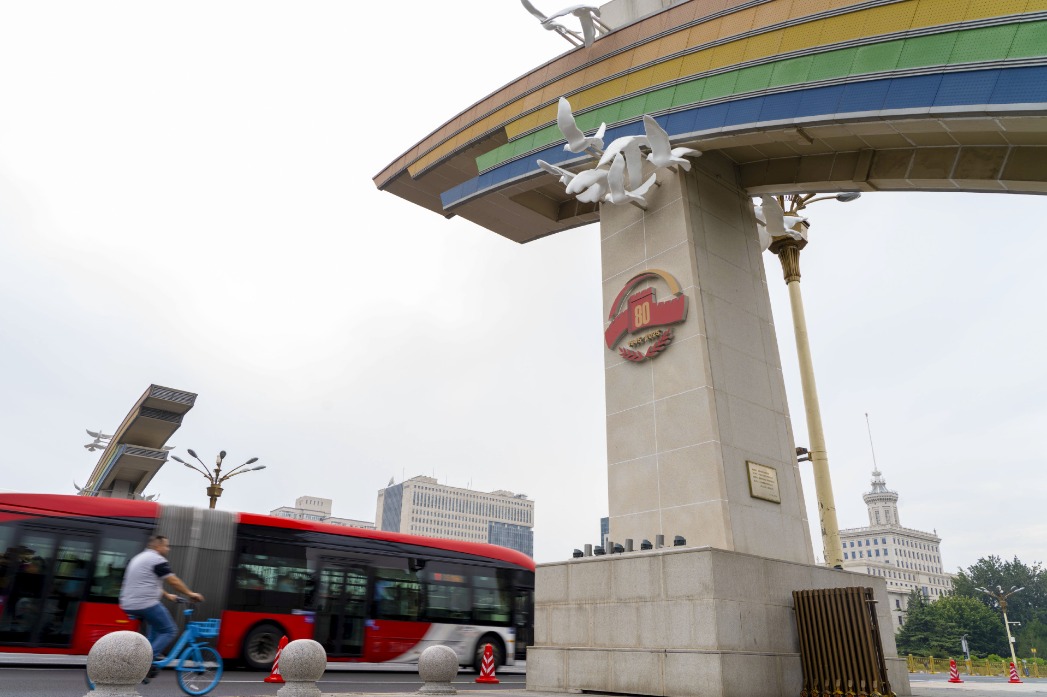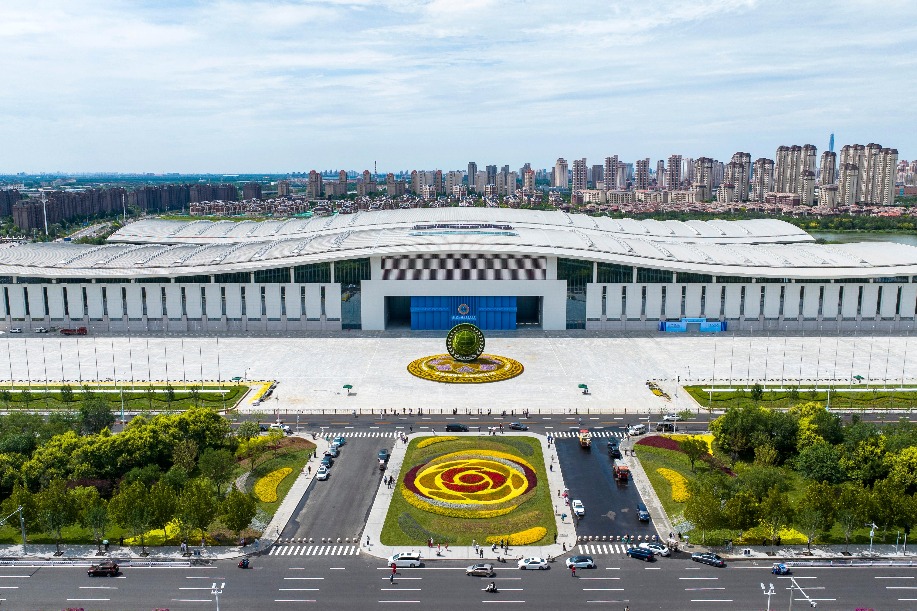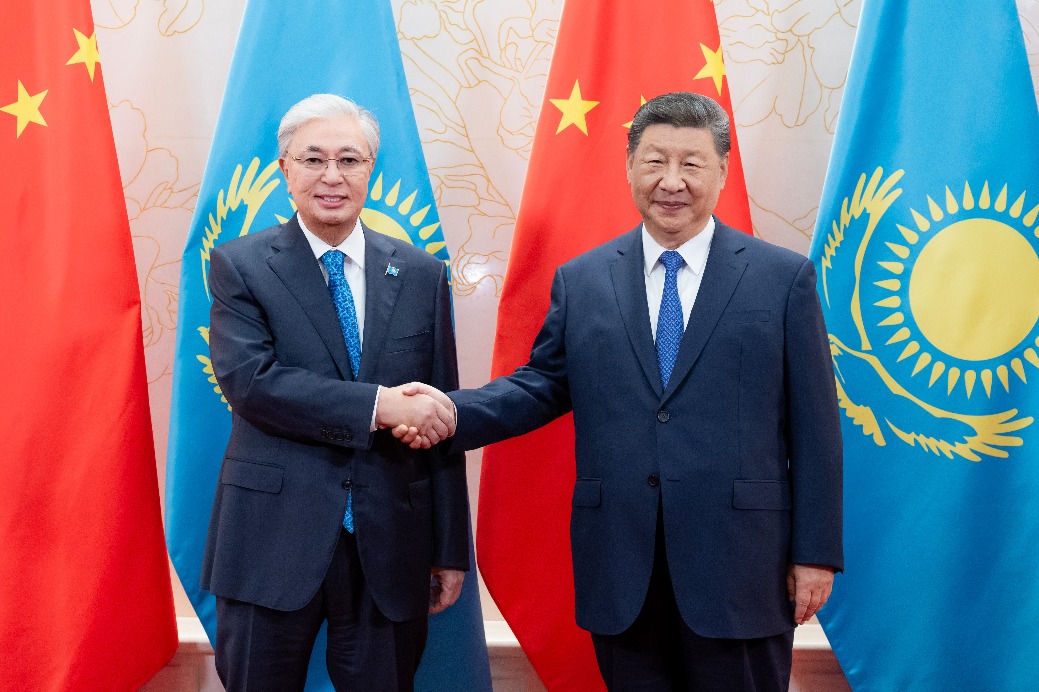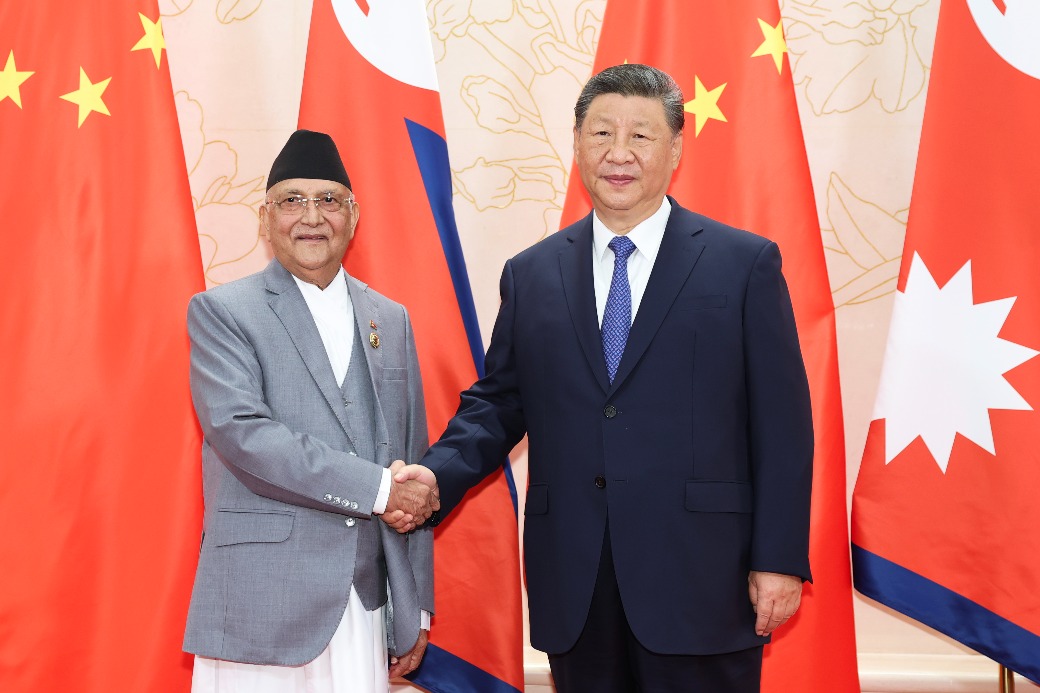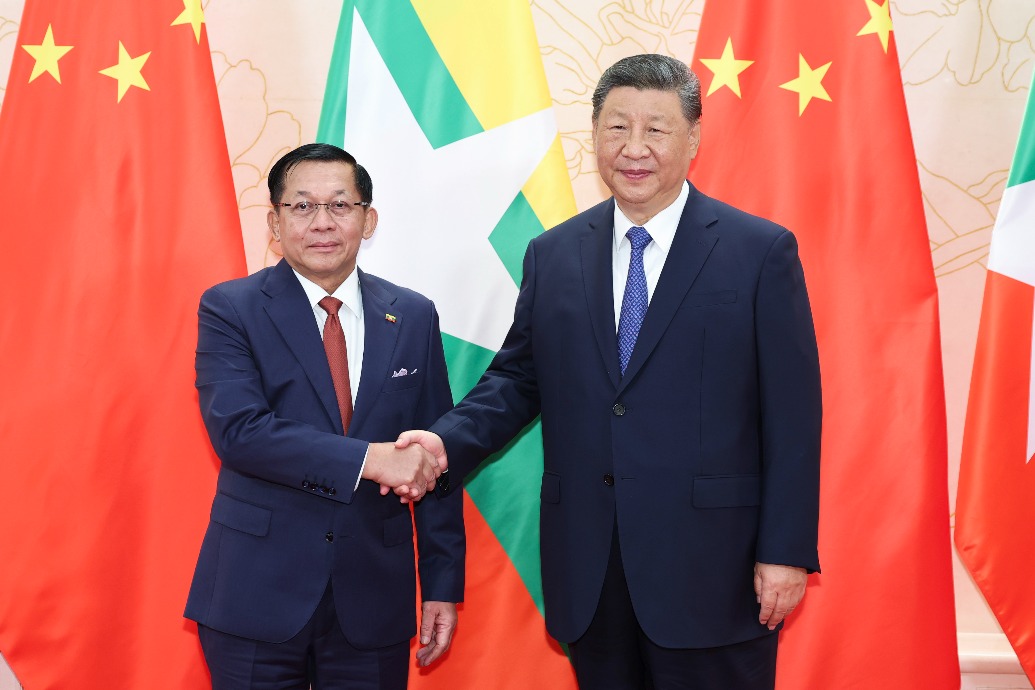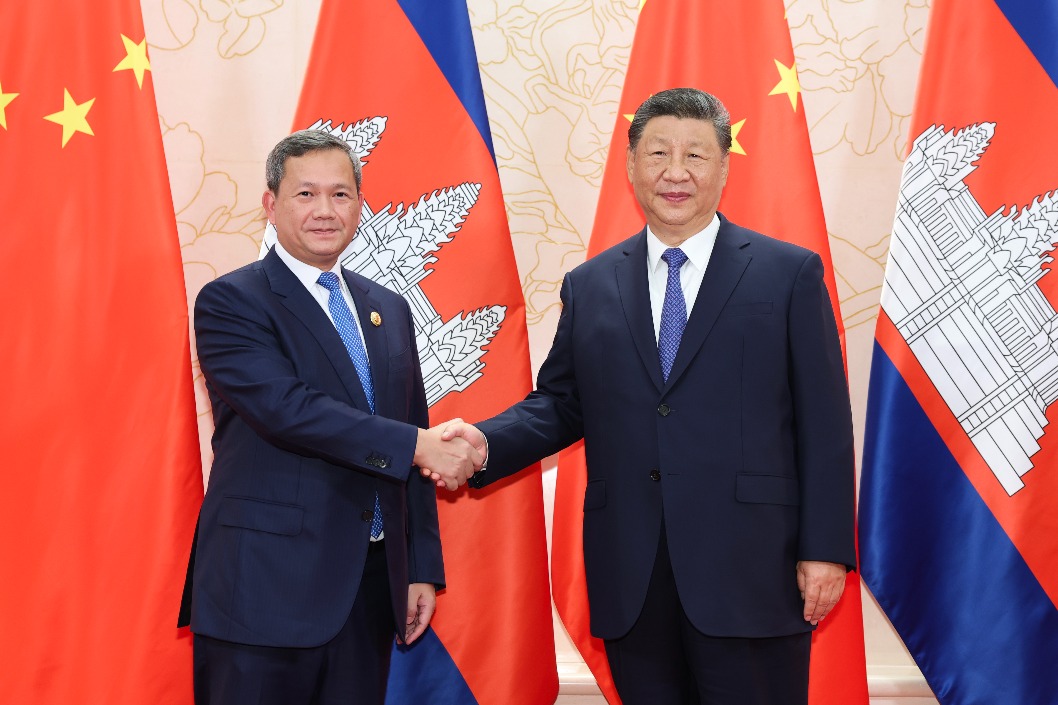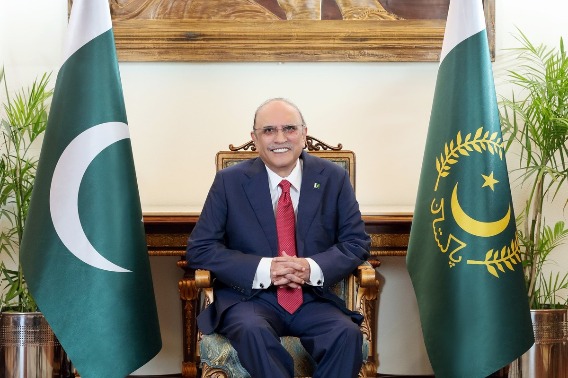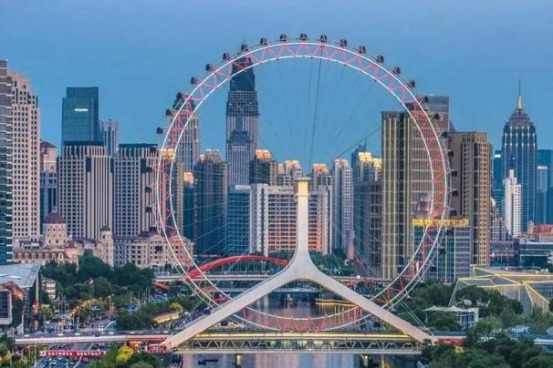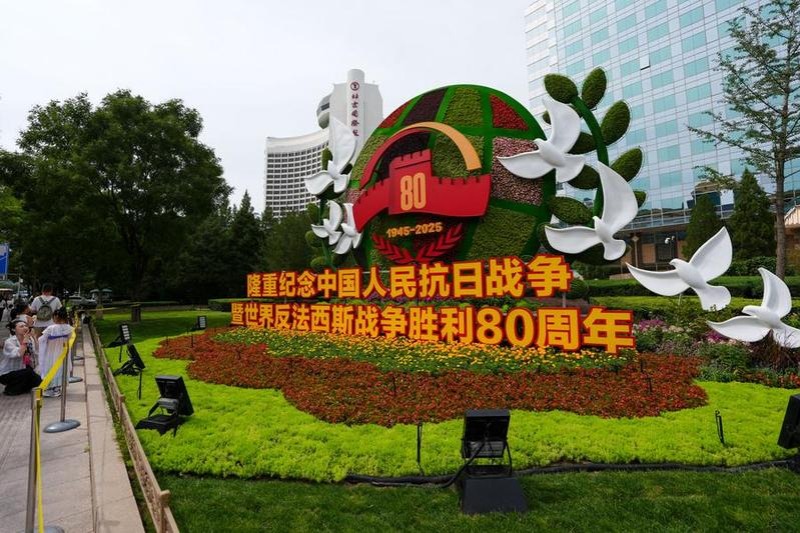Return to the right side of history


LI MIN/CHINA DAILY
Nixon's historic visit to China 50 years ago was recognition of China's potential as a partner, something Washington should bear in mind today
In the history of international relations, summit meetings between world leaders have become so common and so numerous that their anniversaries are rarely remembered. Yet some meetings have a world-shaking impact. They are recalled globally and their contemporary significance is analyzed long after their occurrence. Former United States president Richard Nixon's visit to China in February 1972 and his meeting with Chairman Mao Zedong belong to that latter privileged category. The 50th anniversary of that visit reminds us how tectonically the world changed as a result of it and-far more importantly-h(huán)ow fundamentally the global order has changed in China's favor since then.
Nixon's visit marked the end of a prolonged break in Sino-US relations. After the so-called ping-pong diplomacy in April 1971 and the secret journey to Beijing by the then US national security adviser Henry Kissinger in July of the same year, the stage was set for Nixon's landmark visit to China in February 1972.
The greatest significance of the Mao-Nixon summit was that it de-ideologized Sino-US relations to some extent. It must be said to the credit of the Nixon-Kissinger duo that they recognized China's indispensability in building a stable international order. In his book On China, Kissinger writes: "The Sino-US rapprochement started as a tactical aspect of the Cold War; it evolved to where it became central to the evolution of the new global order. Neither of us had any illusion of changing the basic convictions of the other. It was precisely the absence of any such illusion that facilitated our dialogue."
Nixon, according to Kissinger, "forecast that despite China's turmoil and privation, its people's outstanding abilities would eventually propel China to the first rank of world powers". The forecast was prescient. In the decades following this visit, China has indeed become a front-ranking global power. By the end of this decade, its economy is expected to overtake that of the US.
In contrast, the US is no longer the dominant superpower it was five decades ago. Its global political standing and influence have declined sharply. Its economy is severely debt-ridden. Its social attraction is on the wane. Its technological leadership stands challenged. It has ceased to be the sole author of the rules for global governance. Its recurrent, and unwinnable, wars have severely eroded its global prestige, the latest example being its ignominious exit from Afghanistan. No less significant, its domestic woes have increased. Its political system has become frighteningly confrontational. The racial and class inequalities have grown wider. As a result, uncertainty and anxiety have begun to cloud US citizens' views about the future of their country.
If Nixon's visit marked the rectification of the US' flawed policy of trying to isolate China, and hence showed its choice to be on the right side of history, the US' current attempts to "contain China "demonstrate that it has now moved to the wrong side of history, for the simple reason that China's rise cannot be stopped, much less reversed. With honorable exceptions, US politicians and media establishments fail to understand that in terms of sheer demographic strength, China's population exceeds that of the US by over 1 billion. Furthermore, China, which is blessed with the heritage of an ancient and rich civilization, is now pursuing national rejuvenation with zeal and determination and has already achieved stellar successes.
Those believing in US "exceptionalism", the notion that the US is born to be the leader of the world, are deluding themselves. The trade war with China, the so-called pivot to Asia, the US-led anti-China clique called Quad, which is dubbed the "Asian NATO" (comprising the US, India, Japan and Australia), and obstructions created for the peaceful reunification of Taiwan-all these components of the US' strategy to contain China are doomed to fail.
In its own enlightened self-interest, the US should rectify its China policy by once again de-ideologizing it. It should stop lecturing China on "democracy" and "human rights" because its own record on these issues is far from exemplary. Above all, it should learn to live peacefully in a world that has become irreversibly multipolar.
During his visit to the US in 2017, Chinese President Xi Jinping made a realistic proposal to his then US counterpart Donald Trump. Stating that China-US relations needed to be pushed forward from a new starting point, President Xi said: "There are a thousand reasons to make the China-US relationship work, and no reason to break it. A sound bilateral relationship will benefit not only the two countries and peoples, but also the world at large." The US' incumbent president, Joe Biden, would do well to heed these wise words.
The author, who served as a close aide to India's late prime minister Atal Bihari Vajpayee, is the founder of Forum for a New South Asia. The author contributed this article to China Watch, a think tank powered by China Daily. The views do not necessarily reflect those of China Daily.
Contact the editor at editor@chinawatch.cn
















